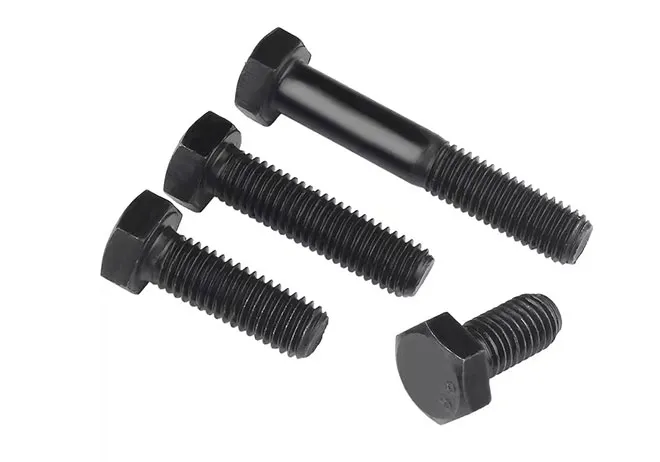high quality stud bolt astm a193 gr b16
Oct . 06, 2024 23:46 Back to list
high quality stud bolt astm a193 gr b16
Understanding High-Quality Stud Bolts ASTM A193 Gr B16
When it comes to industrial applications, the choice of fasteners plays a critical role in ensuring structural integrity and safety. Among various fasteners, stud bolts are particularly vital due to their unique design, which provides superior gripping power and load distribution. One commonly referenced standard for these components is ASTM A193, specifically Grade B16. This article explores the properties, applications, and importance of high-quality stud bolts that meet the ASTM A193 Gr B16 specification.
What are Stud Bolts?
Stud bolts are cylindrical fasteners that are threaded on both ends, typically with a smooth shank in the middle. They are often used in conjunction with nuts and serve various purposes, from securing flanges in piping systems to assembling heavy machinery. The design and threading of stud bolts allow for a high clamping force, making them ideal for high-pressure and high-temperature environments.
ASTM A193 Gr B16 Specification
The ASTM A193 standard covers the mechanical requirements for bolting materials used in pressure vessels, piping, and fittings. Grade B16, in particular, is known for its high strength and corrosion resistance properties. It is typically made from alloy steel and exhibits superior performance under extreme conditions, including high temperatures and aggressive environments.
Key features of ASTM A193 Gr B16 stud bolts include
1. Material Composition Grade B16 is often composed of alloy steel that may contain chromium, molybdenum, or vanadium, which enhances its mechanical properties. 2. Mechanical Properties Stud bolts made from this grade typically exhibit excellent yield strength, tensile strength, and elongation. This combination of properties is crucial when dealing with demanding applications.
3. Heat Treatment Stud bolts under this grade often undergo heat treatment processes to improve their hardness and stress resistance, making them suitable for use in high-stress environments.
high quality stud bolt astm a193 gr b16

4. Corrosion Resistance The alloy composition also provides inherent resistance to oxidation and corrosion, essential for longevity, especially in chemical processing plants and offshore applications.
Applications of ASTM A193 Gr B16 Stud Bolts
Due to their outstanding mechanical properties and reliability, ASTM A193 Gr B16 stud bolts find applications across various industries, including
- Oil and Gas Used in securing flanges, valves, and other critical components in pipelines that transport oil and gas. - Chemical Processing Appropriate for environments where chemicals can cause degradation, ensuring safe handling and transport of materials. - Power Generation Commonly found in power plants, supporting heavy machinery and ensuring the stability of structural components. - Marine Applications Ideal for use in ships and offshore platforms, where resistance to corrosion is paramount.
Importance of Quality Assurance
Using high-quality stud bolts, such as those meeting ASTM A193 Gr B16 specifications, is essential for maintaining safety and reliability in industrial applications. Inadequate quality can lead to failures, resulting in costly downtime, environmental hazards, and even catastrophic accidents. Therefore, sourcing from reputable manufacturers who comply with the relevant standards is crucial to ensuring that the fasteners used are reliable and effective.
Conclusion
High-quality stud bolts, particularly those conforming to ASTM A193 Gr B16 standards, are indispensable in a wide range of demanding industrial applications. Their exceptional strength, durability, and resistance to corrosion make them ideal for ensuring the integrity of critical structures and systems. Investing in these premium fasteners not only enhances the reliability of operations but also contributes to overall safety in various industries.
Latest news
-
High-Quality Panel Stud Bolt Reliable Panel Stud Bolt Factory & Suppliers
NewsJul.08,2025
-
High-Precision Fine Thread Locknuts Manufacturer & Supplier Custom Solutions
NewsJul.08,2025
-
PH Imperial Stud Bolt – High Strength Fasteners from Leading Supplier & Factory
NewsJul.07,2025
-
High-Quality Allen Wrench Bolts Leading Factory, Company & Suppliers
NewsJul.07,2025
-
Wholesale Ball Stud Bolt - High Quality Supplier & Factory Price Reliable Wholesale Ball Stud Bolt Company
NewsJul.06,2025
-
High-Strength Alloy Bolts Manufacturer & Supplier Quality Alloy Fasteners Factory
NewsJul.06,2025
